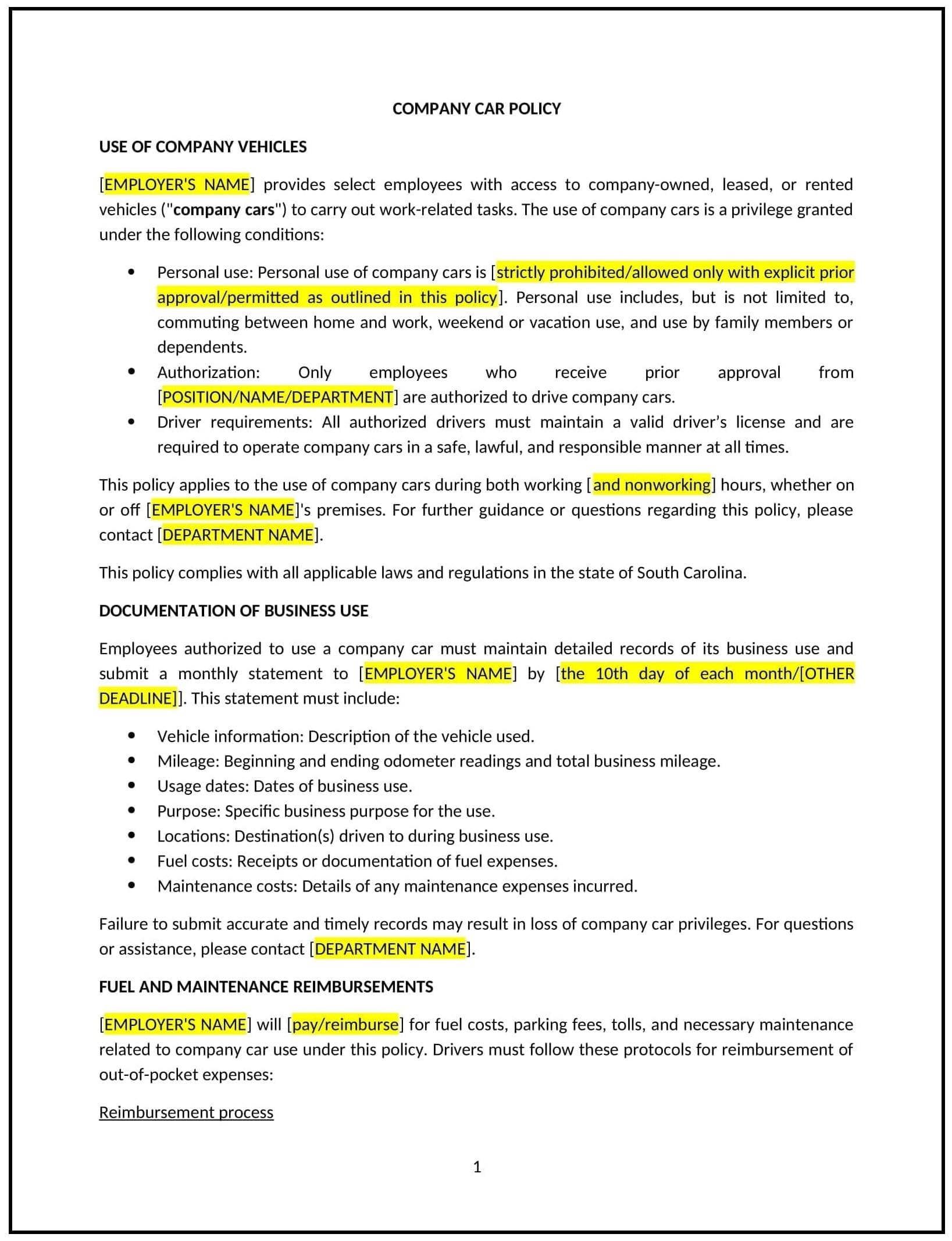Got contracts to review? While you're here for policies, let Cobrief make contract review effortless—start your free review now.

Customize this template for free
Company car policy (South Carolina)
This company car policy is designed to help South Carolina businesses establish guidelines for providing vehicles to employees for business use. It outlines procedures for vehicle assignment, maintenance, and usage to ensure safety, accountability, and cost-effectiveness.
By adopting this policy, businesses can streamline vehicle management, reduce risks, and align with general best practices for company-provided transportation.
How to use this company car policy (South Carolina)
- Define eligibility: Specify which employees are eligible for company cars, such as those with frequent travel requirements or specific job roles.
- Set usage guidelines: Provide rules for using company cars, such as restrictions on personal use, mileage limits, or geographic boundaries.
- Address maintenance: Outline procedures for vehicle maintenance, including regular inspections, repairs, and cleaning.
- Ensure insurance coverage: Specify the insurance requirements for company cars and employee responsibilities in case of accidents.
- Monitor fuel usage: Provide guidelines for tracking and reimbursing fuel expenses, if applicable.
- Train employees: Educate employees on the policy’s requirements and their responsibilities for using and maintaining company cars.
- Review and update: Assess the policy annually to ensure it aligns with evolving business needs and legal standards.
Benefits of using this company car policy (South Carolina)
This policy offers several advantages for South Carolina businesses:
- Streamlines vehicle management: Provides clear guidelines for assigning, using, and maintaining company cars.
- Reduces risks: Helps mitigate liabilities associated with accidents, misuse, or unauthorized use of company vehicles.
- Aligns with best practices: Demonstrates a commitment to responsible vehicle management and employee safety.
- Enhances accountability: Ensures employees are aware of their responsibilities when using company cars.
- Controls costs: Provides a framework for managing vehicle-related expenses, such as fuel, maintenance, and insurance.
Tips for using this company car policy (South Carolina)
- Communicate the policy: Share the policy with employees and include it in the employee handbook.
- Provide training: Educate employees on the policy’s requirements and their responsibilities for using and maintaining company cars.
- Monitor compliance: Regularly review vehicle usage and maintenance records to ensure adherence to the policy.
- Address issues promptly: Take corrective action if vehicles are misused or maintenance is neglected.
- Update regularly: Review the policy annually to ensure it aligns with evolving business needs and legal standards.